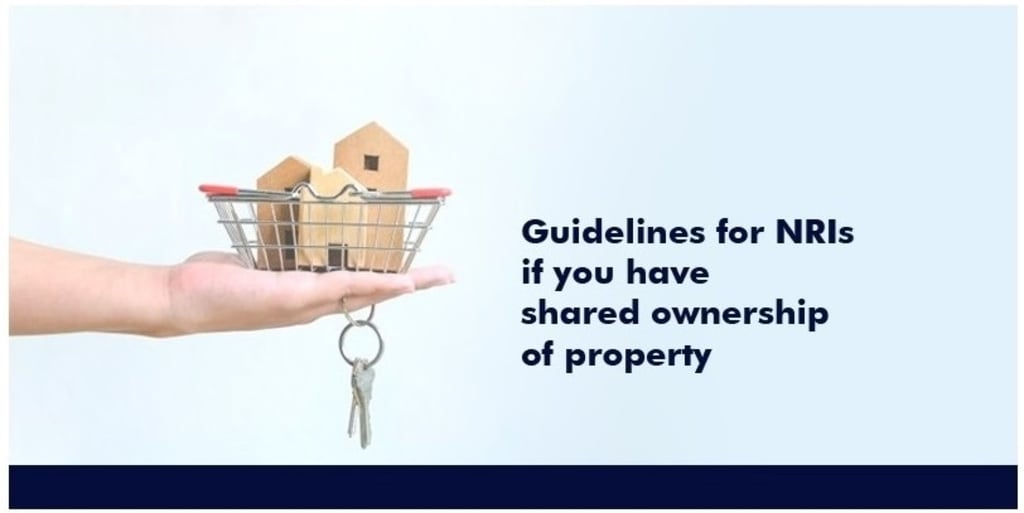Laws and Legal procedure for transfer of property after the death of the owner
The process of transfer of property ownership after the death of the owner is imperative to secure the rights of the new owner. The process of transfer of property of the deceased owner is governed by the Hindu Succession Act 1956 and the Indian Registration Act 1908. The property after the death of the owner shall devolve upon heirs of the owner if left intestate by the owner. The transfer of property involves various legal and procedural formalities to obtain ownership of a property, in accordance with the law and such formalities may differ based on the nature of the property, the number of legal heirs, rights of the beneficiary, etc.

Suppose an owner of a property is willing to transfer the ownership rights to someone during their lifetime, there are various instruments available through which he can transfer their title rights, such as, Gift Deed, Transfer Deed, Relinquishment Deed or Sale Deed, etc. However, if such property is not transferred during the lifetime of the owner in that case the legal heirs/beneficiaries can now get the property transferred by fulfilling the legal requirements and procedural formalities, depending on the mode of transfer. Some of the commonly known methods are Will, Sale deed, Partition deed, Family Settlement, Relinquishment deed, etc. However, just having the requisite papers is not enough; such a document must be genuine and valid.
To transfer of property after the death of the owner, the first step is to establish Legal ownership. When you inherit a property, it can be transferred if you have substantial proof to claim your inheritance and proper documents of property are available. A person dying, leaving a Will, will have his executors administer the property as per his Will. The same should not be contrary to law. The property will devolve upon the persons so mentioned in the Will executed. The process is that such persons can approach by way of any application the appropriate government authorities, i.e. the Sub-Registrar, and complete the legal formalities for transfer of property.
Problems, however, arise when there is no Will. When a person dies without making a Will, the succession laws come into effect, and the property primarily passes on to Class I heirs or Class II legal heirs as described in the Hindu Succession Act.
Another case is where the deceased owner is a co-owner of the property, and the property is yet to be partitioned, in that case, the legal heirs of the deceased owner can seek partition through Court first to separate their share from other co-owners.
Next is when there are sale deeds executed in favor of the deceased owner. When proper property documents are available, the process of the transfer becomes easy. In the case of ancestral property and with no valid documents available, the transfer becomes difficult. One would need to trace the title of the property first, in such cases.
Process and Documents
When the beneficiaries and their shares, rights and liabilities are decided depending on the testamentary Will or intestate, sale deed, partition deed, etc., the property should be transferred in their names. For this transfer, you need to apply for a property transfer at the sub-registrar’s office. Mostly, the documents required for registration are the instrument showing the title of ownership, proof of relationship to the deceased, and No Objection Certificate of other legal heirs.
Procedure for transfer
• Payment of the Stamp duty and Registration Charge for the transfer– The transfer of any immovable property in India with a value of Rs. One hundred or more needs to be registered by paying applicable stamp duty and property registration charges.
• Application to Sub-registrar for registration– Application has to be made addressing the sub-registrar in whose jurisdiction the property is situated. Two witnesses are required on the date of registration.
• Submitting necessary documents – Along with the deed, you also need to submit some documents for the completion of the registration such as proof of payment of stamp duty. Besides evidence of payment, you will need a complete list of documents. Those are listed as follows -
1. Proof of ownership – property papers in original
2. Proof of inheritance, e.g. Will.
3. Death certificate from the recognized authority.
4. A document containing a description of the immovable property, e.g. maps etc
5. Power of attorney/letter of authority, in case of a person representing someone else, the document of power of attorney.
6. Proof of relation with the deceased owner
7. Photographs of both the parties and two witnesses are mandatory.
8. Proof of identification of each party and witnesses like PAN, Aadhar Card, Voter’s ID, etc.
9. Proof of payment of requisite fee/costs, e.g. drafts
10. Property tax receipts
11. Liability affidavits
12. Encumbrance certificate
13. Land Record / Khata
14. Other legal heirs to give a No Objection Certificate in some cases
15. In case the property is/was under lease from any government authority, then the permission of lessor for registration of the document.
16. Submit a No Objection Certificate to the effect that the property is not under acquisition.
• Verification Process – At this stage, the sub-registrar will see that the person presenting is either executing or claiming party. If it is verified that stamp duty, penalty, etc. are duly paid, he will further identify the witness by taking signature and address.
• Mutation: After the registration of documents in your name; the next task is to apply for mutation of the property title in appropriate cases.
Transfer of property, especially after the death of the owner can surely become a cumbersome process. The best way to handle it is to hire a top law firm in India and get respite from legal woes.





Comments
There are no comments for this story
Be the first to respond and start the conversation.